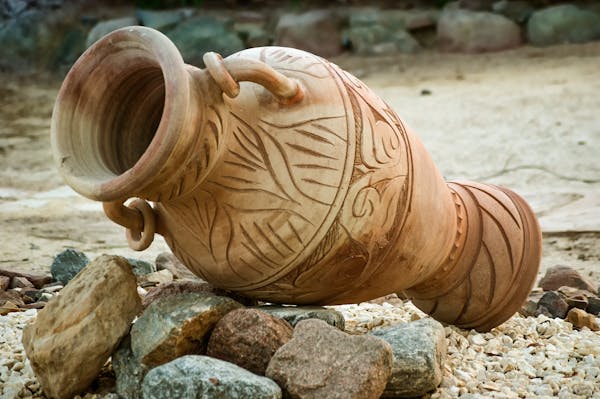When Jesus came out of the Gethsemane he was prepared to face what lay ahead of him. A pack of armed men, carrying torches, made their way toward him. The disciples, who had been sleeping woke up, blinking bleary eyes against the sudden brightness that surrounded them. Judas materialized from the shadows and kissed Jesus twice, on both cheeks.
And then everything seemed to fall apart. The armed mob converged on the lone, exhausted figure who, just days ago had been hailed by the people as a king. As they seized him the disciples realized what was happening. Peter pulled out his sword and sliced off Malchus’ ear. The rest of the disciples looked ready to bolt.
Jesus intervened. He healed Malchus’ ear, told Peter to put away his sword, and pointedly asked the mob why they had come to take him under cover of darkness when he had been preaching publicly all week long. No one gave him an answer.
Instead, the mob arrested Jesus, the disciples fled and Judas slithered off to collect his blood money. Words were unnecessary in the dead of night. At this point, the only thing that mattered was action.
They brought Jesus to the home of Caiaphas the high priest where a clandestine assembly of scribes and elders had been convened for a quick, low profile trial. False witnesses were brought in but none of them produced the information the council was looking for. They needed something substantial to pin on Jesus. Something that would justify a sentence of death but nothing was forthcoming.
Finally, in desperation, Caiaphas demanded “are you the Christ, the Son of God?”
So far Jesus hadn’t answered a single charge brought against him. He felt no need to defend himself or justify his actions because he knew that he had acted in accordance with His father’s will. He also knew that nothing he said could change the course His father had set for him.
This final question though was a game-changer. It was a question regarding His identity. One that He needed to answer as a witness and a testimony to everyone listening.
With quiet dignity, he answered in the affirmative adding “hereafter you shall see the Son of man sitting on the right hand of power, and coming in the clouds of heaven”
It was enough to condemn him for blasphemy and insurrection. Jewish law forbade a man from making himself God. Roman law did the same citing insurrection against the empire. Only Caesar could call himself a god and Rome only needed one of those.

